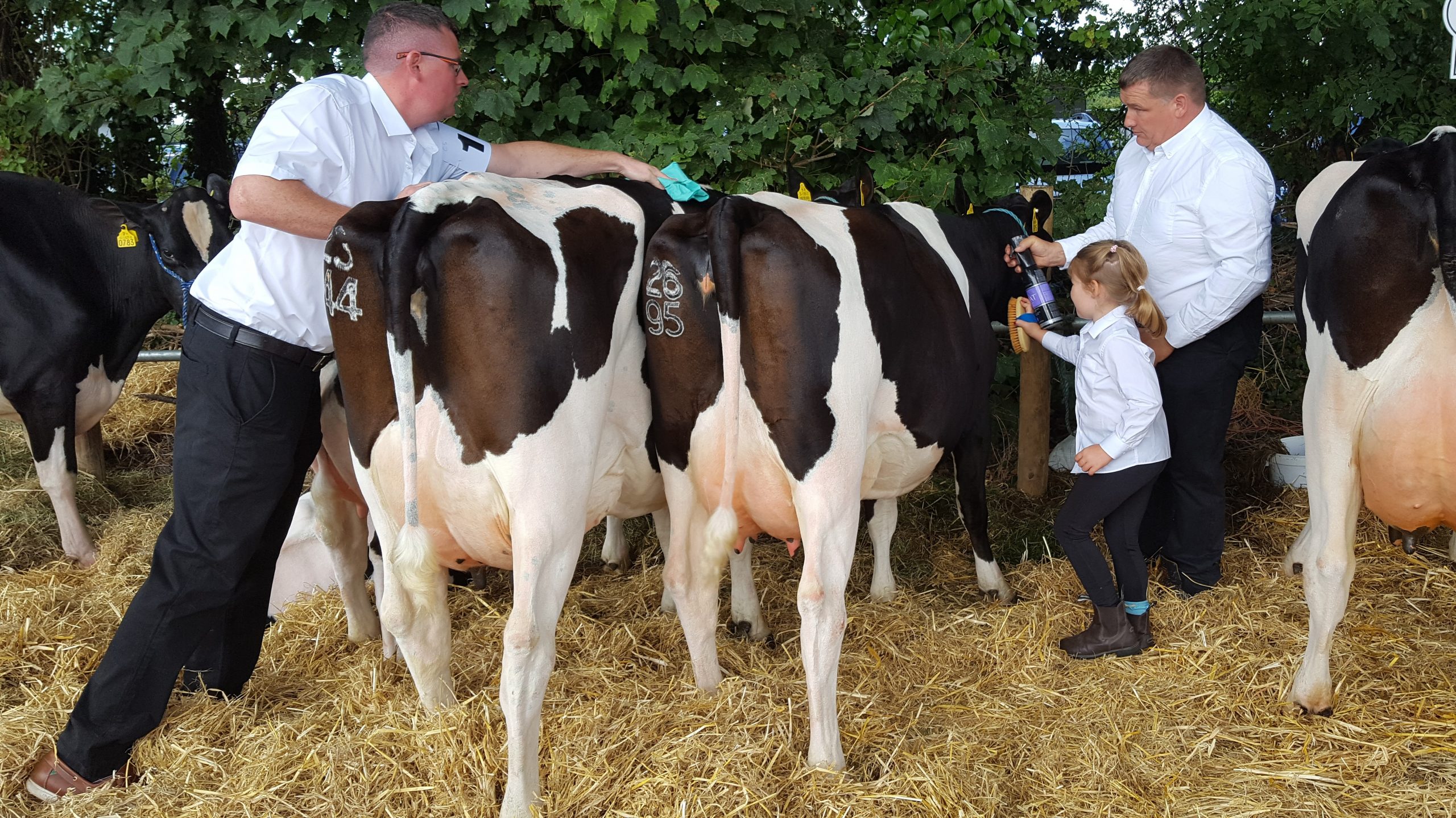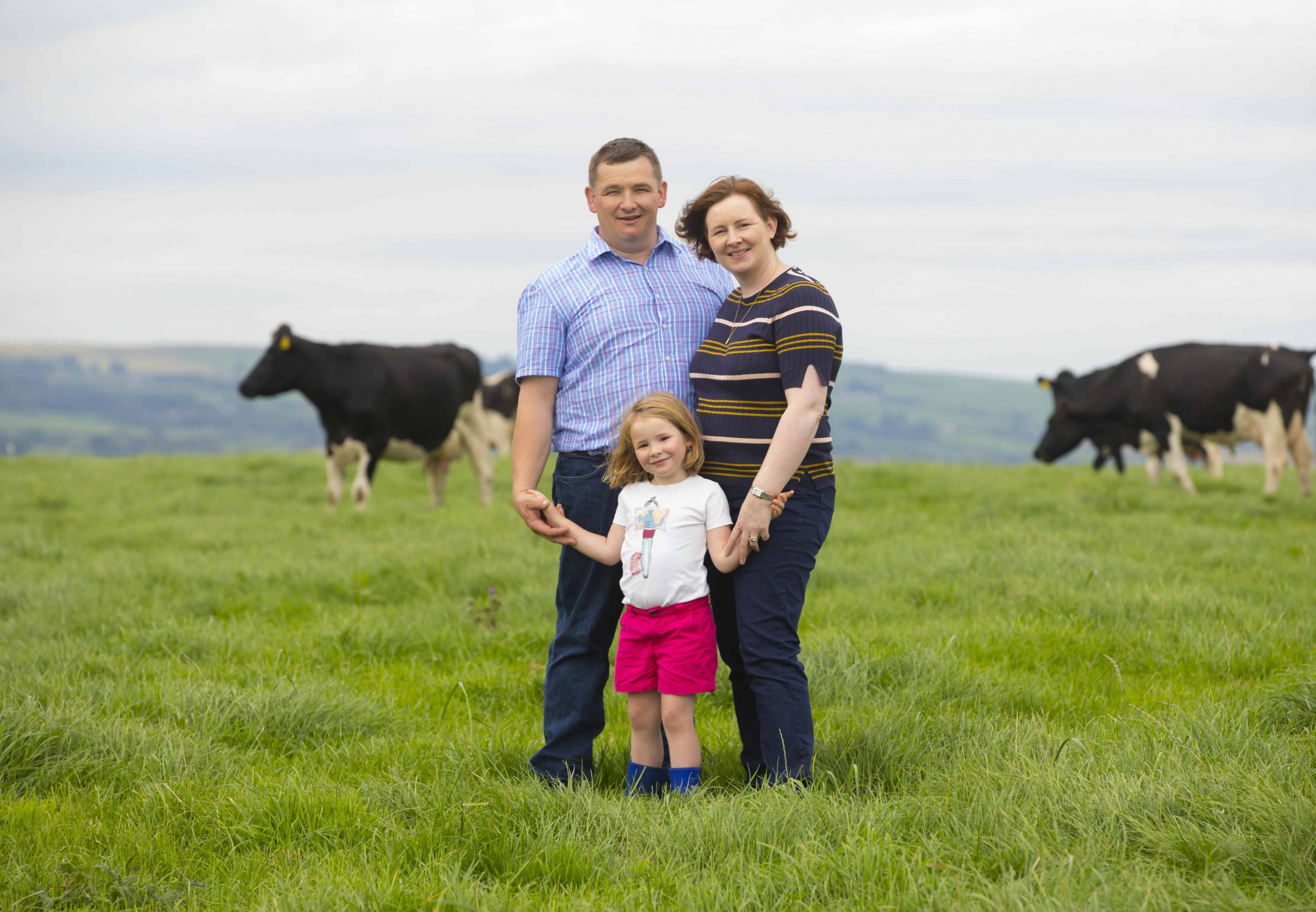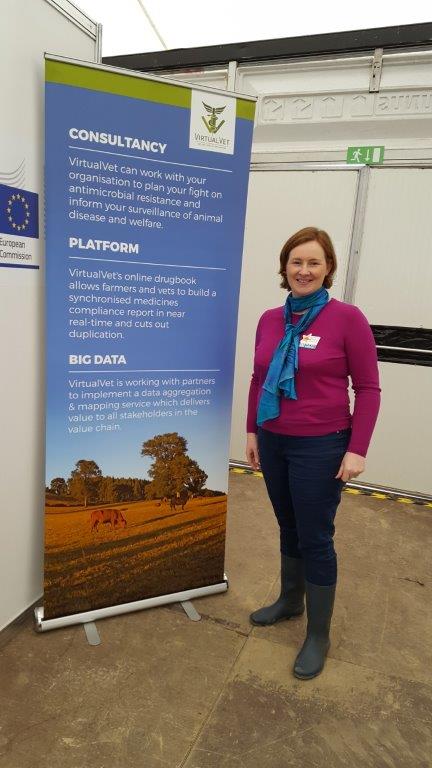Sinead Quealy – offering smart solutions for the smart farm
A creative & smart digital solution to on-farm issue leads to innovative Agri-Tech business start-up.
Combining a managing director role with farming & busy family life on the Grenan Pure Friesian herd
Sinead Quealy has had a remarkable business career to date. She is co-founder and Managing Director of VirtualVet. VirtualVet is an innovative data management company. They leverage cutting-edge software and dynamic EU policy to help farmers, vets and food processors unlock inherent value as stakeholders in the interdependent animal health / human health relationship.
A Farming background leading on to Academia
From a family farm near Thurles, Co. Tipperary, the family’s farming business shaped Sinead’s enterprise and innovation credentials. Excelling at academia, she qualified with a post graduate diploma in Adult Education from the University of Limerick. She then progressed further to attain a Masters of Business Administration (MBA) from Waterford Institute of Technology (WIT). Working as a Senior Project Manager in the WIT Telecommunications Software and Systems Group unit (TSSG), Sinead built up eight years’ project management experience in managing start-up software development projects. She was a member of a small group of experts working with the President of WIT to develop the college’s burgeoning presence and capability in smart agri and agri-tech.
EU Horizon 2020 a catalyst for Career change
“The publication of the EU’s Horizon 2020 strategy programme in 2014 was a game-changer” comments Sinead. Formulated and introduced by Máire Geoghan Quinn, former EU Commissioner for Research Innovation and Science, Horizon 2020 was the biggest EU research and innovation programme ever, with nearly €80 billion of funding available over seven years with provision for additional private investment. As a means to drive economic growth and create jobs within the EU, a goal of the programme was to remove barriers to innovation and make it easier for the public and private sectors to work together in delivering innovation. This ambitious and far-reaching strategy aimed its sights on new economic market horizons and charted a pathway for future growth where the EU economy could thrive and evolve, prospering from science-led innovations, taking creative ideas and concepts from the lab to the marketplace.
Another core pillar of Horizon 2020 was the inclusion of data protection as an emerging and increasingly important issue for society. For the first time the data protection of EU citizens was recognised at the highest EU level. Horizon 2020 applied ethics, definitions and standards of usage. In short, Horizon 2020 decreed lawfulness, fairness and transparency of data processing. It was a precursor to the General Data Protection Regulation (GDPR). In its unambiguous ambition to harness digital technology, it took data capture to a new level of value. While extracting more applications and more value from the data, it also protected the source point. This is how the EU’s Horizon 2020 programme cleverly sought to strengthen the level of power held by farmers within the overall food supply chain.
Sensing a change in direction and realising that new business potential and opportunities were opening up, Sinead had the foresight to seize the day. Capitalising on her scientific and business acumen and her background in farming she recognised the gaps which existed in terms of data capture. Equipped with this and the insights and industry contacts gleamed from eight years as a project manager of software development projects, she decided on a major career change. She moved from campus life to co-found and establish VirtualVet, directing the business operationally as Managing Director.Sinead recounts how preparing at home one evening for an upcoming quality assurance audit for the farm provided a lightning bolt moment. “Every farmer keeps the necessary records and information on file. However, the manner in which these records are stored means that they remain on the farm, and not of use to the wider industry and policy makers. So no one could build a complete picture. Through my work and experience with the WIT TSSG, I was familiar with the gaps that existed between where technology and smartphone capability was versus the technology solutions used by government agencies in their communications with farmers. It dawned on me that there was an opportunity for a service such as VirtualVet and that’s really how the business came about”.
What is VirtualVet?
“VirtualVet is an online medicines book, allowing farmers and vets to build a synchronised medicines compliance report in real-time and therefore cutting out duplication. VirtualVet’s data capture platform is synchronised to a dynamic web portal which builds a medicines book for farmers, supported by a phone service, ensuring on-farm animal treatments are recorded as required by EU food quality regulations. Virtual Vet also provides a data aggregation and analysis service which delivers value to all stakeholders in the food value chain.”
VirtualVet at a glance
- Collects and curates on-farm animal remedy usage information in a GDPR compliant manner
- Prepares insights, analysis and reporting to help customers (e.g., processors, Bord Bia etc) along the food chain to better understand the risks and the opportunities in their supply.
- Helps farmers build a synchronised medicines book – compliance-ready at the press of a button.
- A free-of-charge service for farmers with revenue obtained from the end users in the food supply chain.
“We offer our services free to farmers using a data-driven business model with explicit permissions as data controllers. We deliver a phone service to assist farmers to record all on-farm animal treatments. Getting a clearer picture of the exact usage of medicines and an earlier indication of animal disease instances will contribute to reduced risks for farmers, government agencies, food processors and the pharmaceutical companies, not to mention increased public health assuredness around food safety and disease outbreaks.
“There is a demand in the marketplace for animal health data. It has an economic value along the food chain. At VirtualVet we take the manual on-farm record, then process it and digitise it. We can then answer a question from any vested organisation further along the food supply chain. Essentially, I don’t need to see all the data that is supplied by the farmer, I just need the part of the data which answers the question that is being asked at the point in time by the third party. It’s a win-win all round, the farmer gains, the processor gains, the ag food sector gains and ultimately the food consumer also gains.“We help the farmer with their Bord Bia inspection, providing the auditor with the necessary medicine record and logging of withdrawal dates. Our farmer clients have an excellent inspection success rate”.
Creatively inspired by the IHFA herdbook certificate
“I clearly remember seeing pedigree certs at home for the first time. The level and depth of data and information collated and issued on the certificate blew my mind. This data, which is verified, increases the value of what IHFA breeders are producing. The level of traceability is fascinating. In my mind it further validated the power and value of on-farm data.”Ag Innovation evolution and dealing with wider health challenges & consumer expectations of food standards
Food production within the EU is recognised as a public good, with regulatory mechanisms applied to uphold health standards. There is very little privacy in farming. However, this is not a negative. The EU wants to have farmers up front and centre as food producers. Because of the transparency and record keeping maintained by farmers the EU technological data protection rules provide for this data to strengthen the power held by farmers and for added value to be unlocked. Human health medicine is in a frontline battle with antimicrobial resistance. Bacteria have developed a resistance to the antibiotics that were traditionally successfully used to help ill patients to recover. It is proving harder and harder to treat infections in a growing number of scenarios. These resistant bugs are resilient. They are learning how to fight back and how to evolve to survive.
Humanity’s fight back against this resistance challenge includes greater animal health planning to reduce the usage of antibiotics and therefore reduce the risk and presence of antibiotic resistant infections lingering on-farm. Yet in everyday farming life animals get sick and invariably an intervention is required to restore health. From the veterinary perspective a clinical investigation of the sick animal firstly is the vital first step in the appraisal investigation.
So, the onus on both farmers and vets to work together to accurately diagnose, meticulously administer medicinal treatment if so prescribed and to record that medicine application treatment is of even greater importance. In this inter-connected sphere of human health and animal health VirtualVet is strategically aligned.
IT Software
Relying on IBM infrastructure and using servers located in Amsterdam the software underpinning VirtualVet is cutting-edge. Sinead explains that using servers is high cost however it is a hugely important part of the business. “There are three members of staff who take the information provided by farmers and they then disseminate it into detailed compartments. Early on I realised the high capital cost of building an app and the high levels of on-going maintenance required, so instead we mostly use readily available smartphone messaging technology and to date it has proven very successful.”
Continued Success
Five years on since VirtualVet was established, the company has grown to now employ seven members of staff. Clients include a cross-section of farmers across all farming enterprises. It has an island-wide customer base, including Northern Ireland, with a focus to expand into mainland UK and further afield. Applying digitalisation to strengthen food production standards and bonds along the food chain Sinead is successfully navigating VirtualVet beyond multiple horizons of innovation.
Family life
Sinead is married to Patrick Quealy who farms the Grenan Pure Friesian herd with his brother Michael. Family life for Sinead and Patrick revolves around daughter Jo (aged nine) who has a huge interest in farming and showing cattle.





